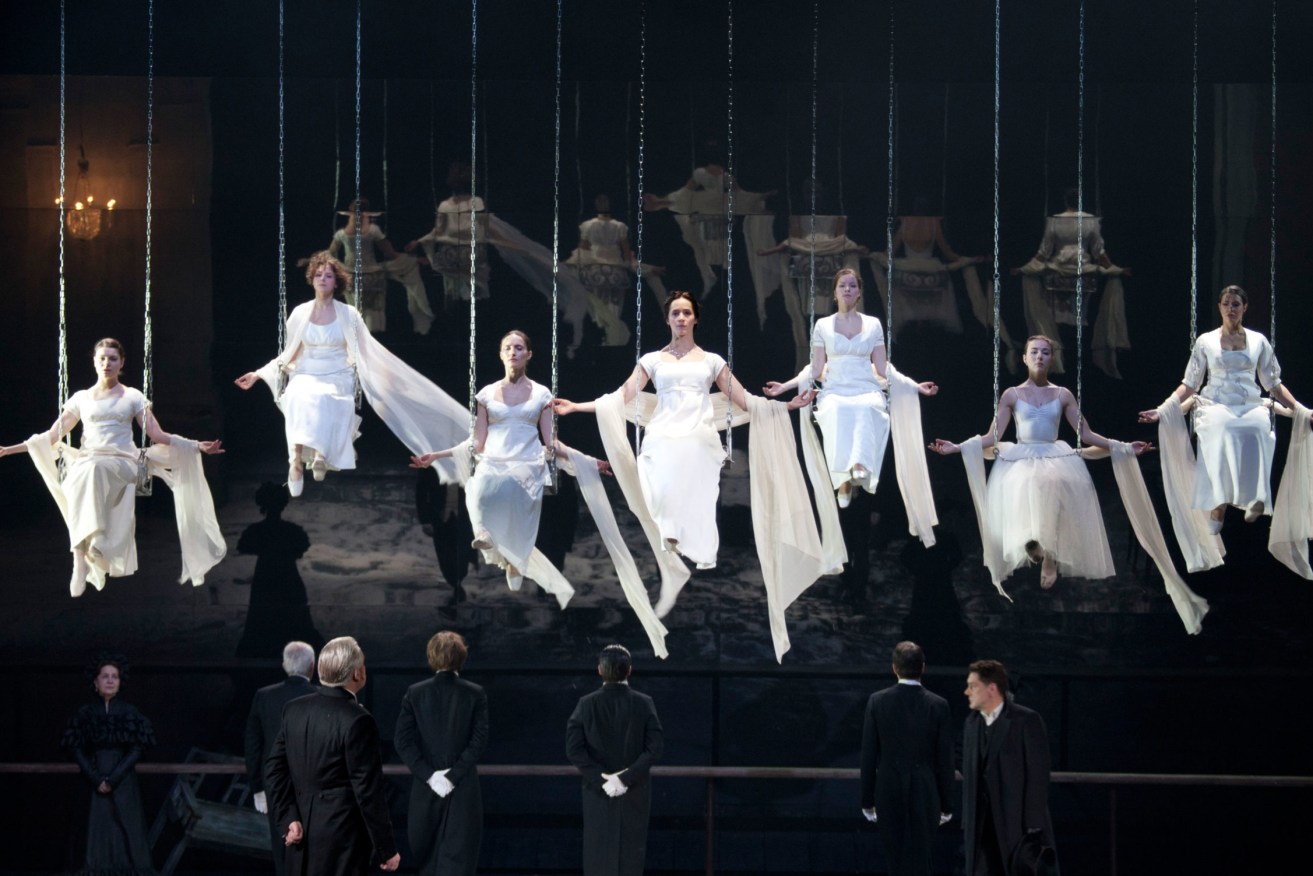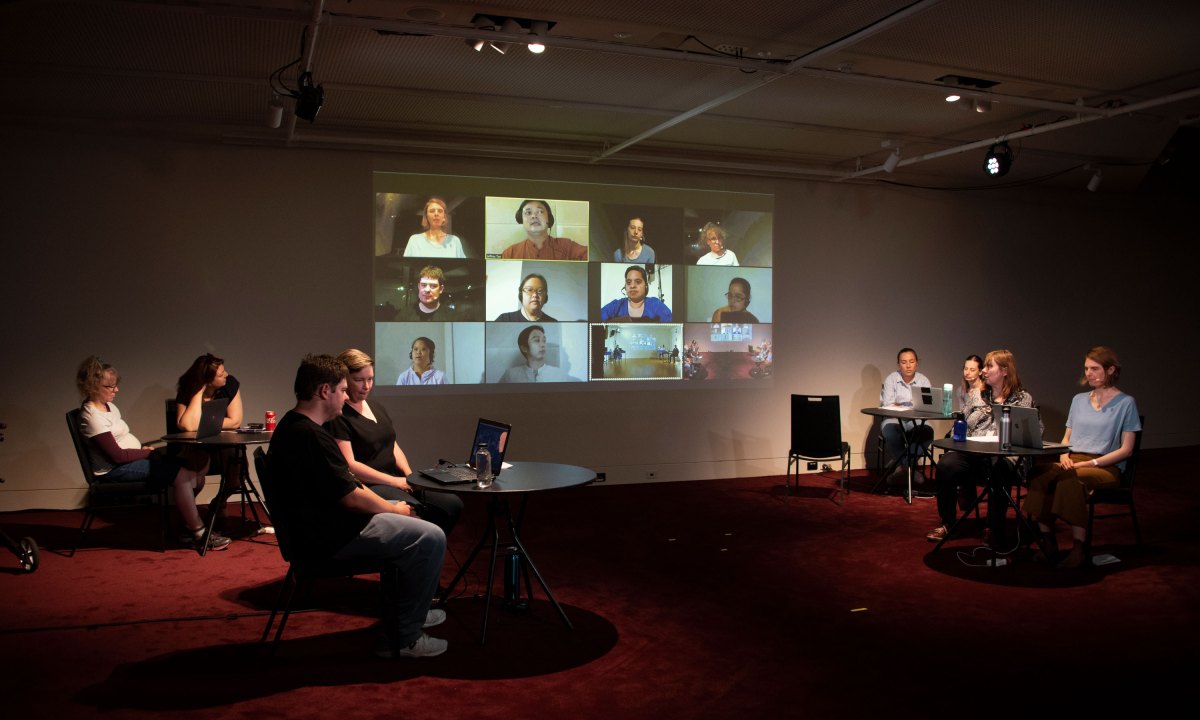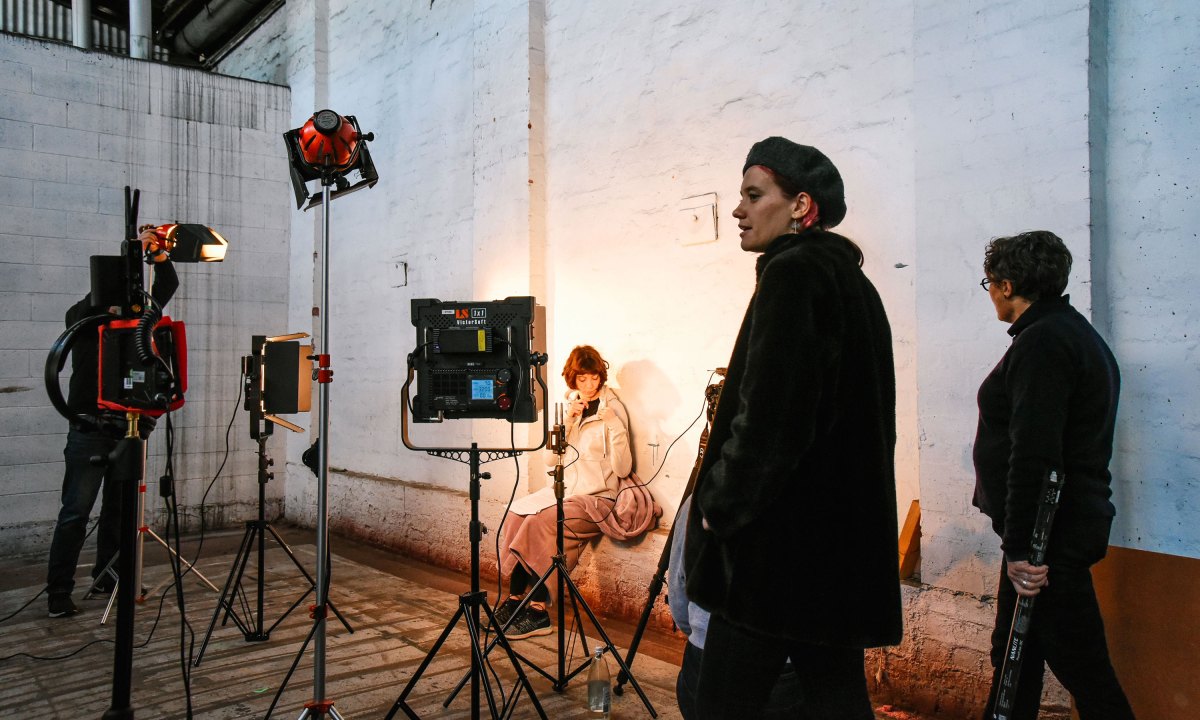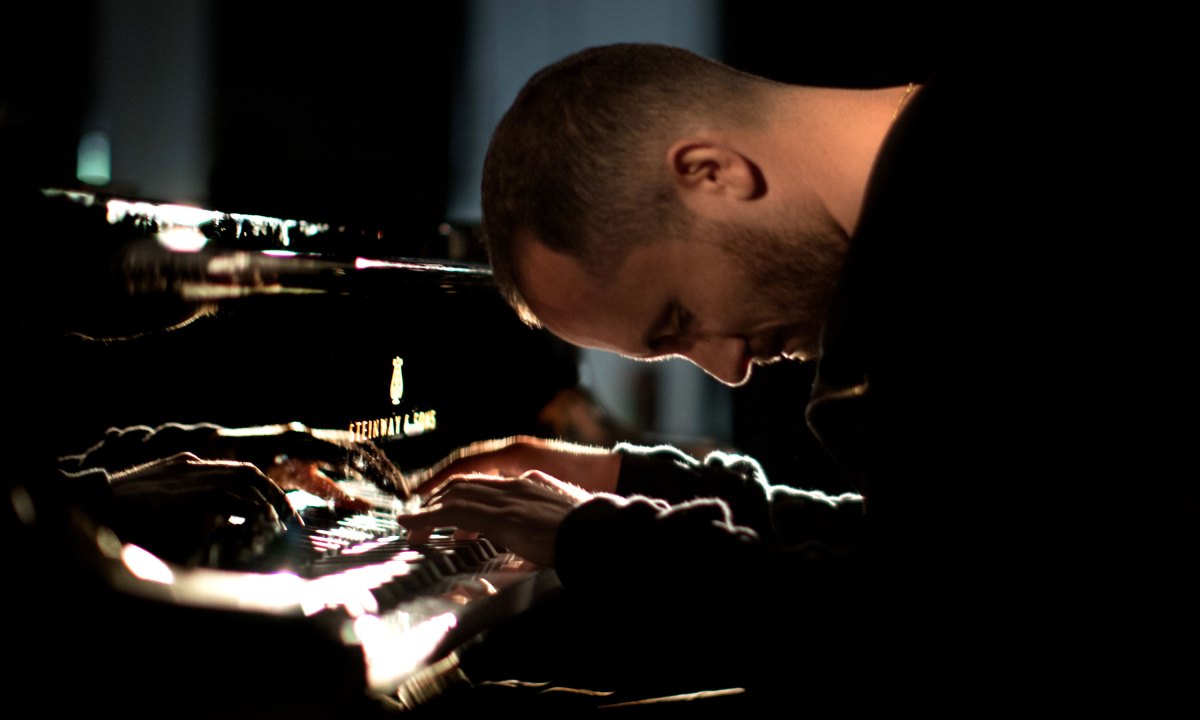Shutdown artists and companies make the world their stage
In the toughest of years for the arts, South Australian companies created new ways to find audiences – and some of these innovations are here to stay.


A dramatisation of Alexander Pushkin’s novel-in-verse Eugene Onegin will be livestreamed from Moscow to Her Majesty's Theatre for the Adelaide Festival. Photo: Valery Miasnikov
In the most gratifying of ironies, the COVID-19 lockdown has turned out to be a time of ground-breaking outreach for the arts.
Not that this should be altogether surprising.
Ever has the arts pushed back against adversity. Ever has the arts taken the cutting edge and carved wondrous things with it. And ever has Adelaide been a crucible for creative change.
When the pandemic thrust theatres and concert halls into gloomy darkness, entertainers stuck at home picked up cameras and instruments and reached out to uplift the public with free online performances sprinkled around social media. They were applauded with likes and smiley faces. Meme became acclaim.
While major theatre companies were releasing classic productions from their digital archives, quiet innovators were playing with Zoom – an online conferencing platform the arts heretofore had largely only used for rehearsals and novelty performances. Could this be used as a new production space?
Almost overnight, Shakespearean theatre companies were pushing at its single-screen limitations, having characters seem to pass props from window to window. An American theatre company was producing pandemic-themed micro family stories, echoing the way in which the Zoom tool, like Facetime, had risen to bring families, friends and clubs face-to-face.
Most people had never heard of Zoom and now everyone was playing with it.
But, without fanfare, it was from Adelaide that Zoom theatre took flight. Ever so quietly, history was made and a new edge of technology was cut as No Strings Attached Theatre of Disability suddenly leapt across the apparent limitations of Zoom theatre.
In collaborating with the Diverse Abilities Dance Collective of Singapore, it embraced the possibilities of simultaneous live international interaction.
The two companies co-ordinated a production called Same Same. The idea was for performers living with disabilities in two worlds to compare notes on the ways in which the pandemic had affected their lives. The conclusion was “same same” – isolation and limited activities created similar stresses in everyone’s world.
But the way in which the two companies accomplished this work carried a thrill of newness.
It sprang from a meeting between No Strings’ Kari Seeley and the charismatic Jeffrey Tan of DADC at an Arts For Good fellowship in Singapore. When later he secured a Singapore International Foundation COVID grant, it was No Strings which won the partnership opportunity in the quest to find new ways to reach across borders.
“I’m not a theatre-maker. I connect people,” says Seeley. She connected Adelaide actor Emma Beech with Tan and, with brainstorming, lots of liaising and rehearsals, plus a support partnership with Novatech and help from the Festival Centre, two worlds were joined as never before.
In Adelaide, this was a low-key COVID-safe production in the Festival Centre’s Quartet Bar. With their cameras on, the Adelaide cast sat at the front of the venue beneath a big screen with their audience stretched out into the darkness. Simultaneously, the Singapore cast, complete with Maya dancers and audience, were doing the same. And, 5400km apart, they met on the big screens, together in real time, taking turns in telling their stories and showing their dances – and the audiences far and near laughed and clapped and marvelled at this joy of technology and friendship.

Same Same brought artists from different worlds together.
“We didn’t realise how ambitious it was until we started,” says Seely.
“We pushed the envelope for everyone. They say it can’t be done, but it has been done. By people with disabilities.”
And so, in a time of COVID-19 closed borders and travel bans, the arts has opened a beautiful and potentially very promising collaborative window.
10 times the innovation
Taking its inspiration from the most notorious pandemic plague of the past, the Black Death, and what people did when hiding from its virulence, the State Theatre Company of SA and ActNow Theatre of Change created a COVID-19 masterpiece which one dares to assert remains unparalleled in the world.
While international theatre companies were still unlocking their archive footage of yesterday’s productions, our thespians secured COVID funding and provided paid work for Adelaide writers, actors, directors and camera people with their latter-day re-creation of Boccaccio’s The Decameron.

Filming Decameron 2.0. Photo: Jack Fenby
Boccaccio’s tales had emerged as a concept of people entertaining each other with story-telling while in hiding from the plague. He related 100 stories and so did our production crew: 10 a week for 10 glorious weeks. The audiences waited avidly for the next instalments on YouTube. There were new writers to admire and actors old and new stretching their wings in often demanding solo pieces.
Even the critics had something fresh to digest.
And thanks to the creative impetus of Mitchell Butel and Edwin Kemp Attrill, Adelaide theatre did not lie down in pandemic defeat. It danced its way through the COVID-19 restrictions and used every tool it could get its hands on to make the show go on.
The festival test
Now it is Festival and Fringe time, there is another huge test for the arts versus a global pandemic.
The Festival will ensure the world can come to us, even when it has to stay at home.
Festival co-artistic directors Rachel Healy and Neil Armfield have zeroed in on the platform of live streaming and made it a feature of the 2021 Adelaide Festival program.
In an exquisite leap of ironic anachronism, our historic, re-created Her Majesty’s Theatre will be the venue for the streamed performances: a four-part “Live from Europe” program of commissioned live theatre, music, and dance performances from Russia, the UK, Germany, and the Netherlands.
The companies will be able to see Adelaide audiences live and in real time, just as Adelaide audiences will see them from their seats in Her Maj. When performers take a curtain call, they will immediately see the response, from one side of the world to the other in a seeming miracle of instant human interaction bouncing through the Cloud.
Healy is excited about this risky but significant experiment.
“No-one, so far as we can tell, has done anything like this. And it was the idea of these being live performances which inspired the companies to participate,” she says.
The catalyst was a memory from Healy’s former life at the Sydney Opera House.
“In the early days of live streaming, a concert on the forecourt streamed both ways to and from a regional hall. The musicians could see the audience crowded into the country hall just as the audience could see them. And seeing those responses was fundamental to the success of the concert. It provided a sense of community – the perfect loop of audience and artist, as if they were both there.
“And that is the nub of this program.”
Healy called around and sounded out the industry, especially the Festival’s invited internationals.
The response was enthusiastic.
“They didn’t know of anyone else doing it. Even the Edinburgh Festival was excited when it heard.”

Igor Levit will perform as part of the Livestreamed from Europe series. Photo: Felix Broede
Mark Pennington is the Festival’s technical manager, a daunting job in this atmosphere of distance and innovation.
“We are using an SRT (Secure Reliable Transport) Cloud server,” he explains. “We rent space on the Cloud. We send to the Cloud and the Cloud sends to us.
“It streams SRTs both ways, giving performers the audience’s live reactions with the minimum delay. And, of course, we rely on the companies involved to send us a quality stream that does their production justice.”
Pennington explains that this live streaming protocol is not like Zoom but more of the established school of Vimeo and YouTube.
It is the Adelaide arts saying: “If Mohammed won’t come to the mountain…”
The Adelaide Festival livestreamed shows will include a performance by Russian-German pianist Igor Levit, director Simon Stone’s radical adaptation of Euripides’ Greek tragedy Medea (created for International Theatre Amsterdam), a dramatisation of Alexander Pushkin’s novel-in-verse Eugene Onegin, and London choreographer Botis Seva’s dance work BLKDOG (presented by London’s Sadler’s Wells).




